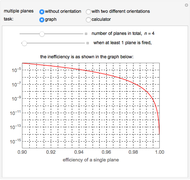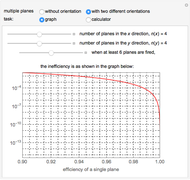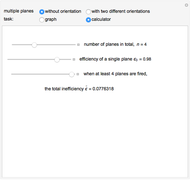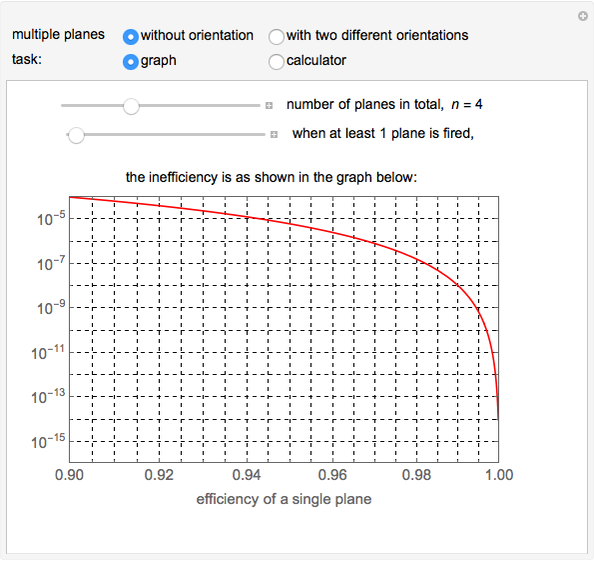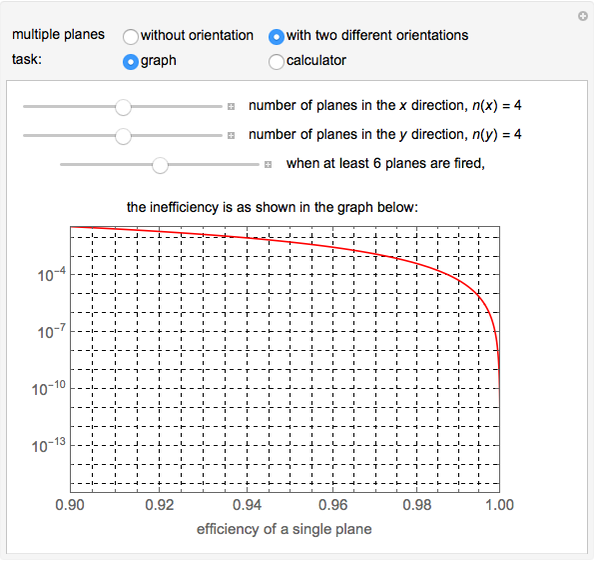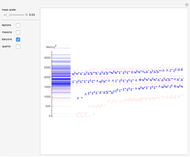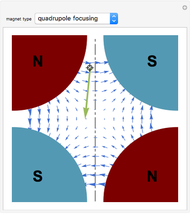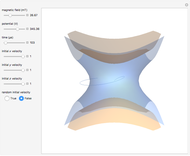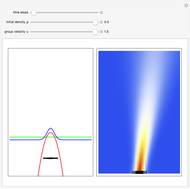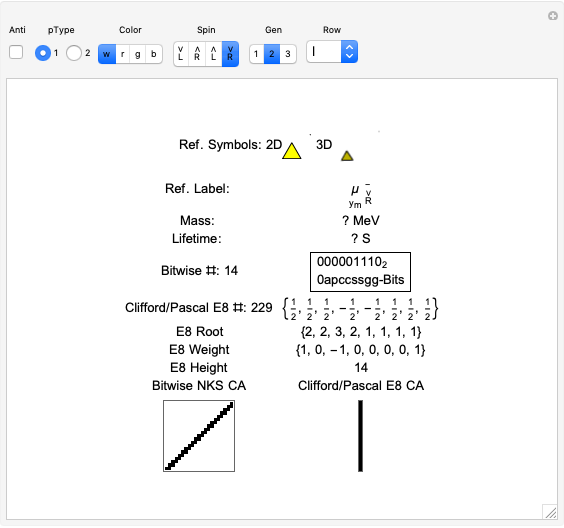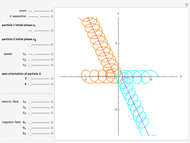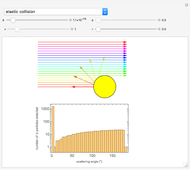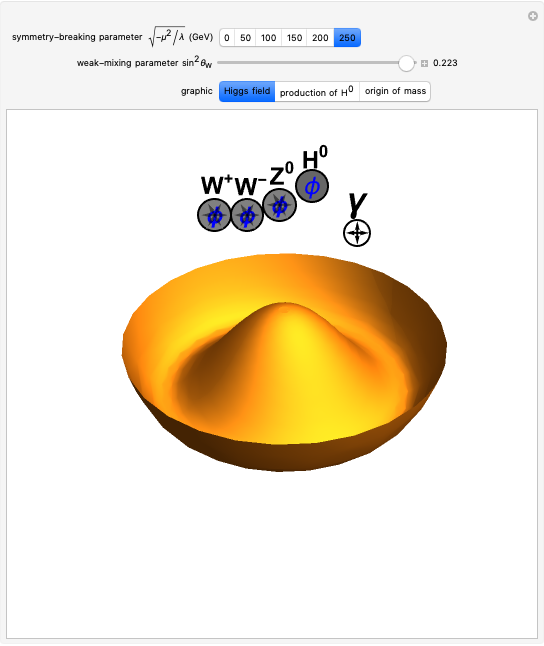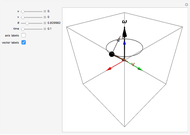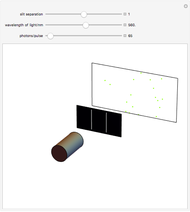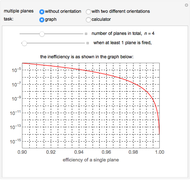Inefficiency Calculations for a Multi-plane Particle Detector

Requires a Wolfram Notebook System
Interact on desktop, mobile and cloud with the free Wolfram Player or other Wolfram Language products.
In particle physics experiments, several sets of identical detecting planes are commonly used in parallel to achieve greater efficiencies than is possible using single planes. Instead of observing whether or not a single plane fires, which may be erroneously caused by random background noise, a combination of feedback from multiple detecting planes is considered. By setting up appropriate criteria (such as taking a lower bound of simultaneous firings of the planes to be an effective event), it is possible to reach very high efficiencies. From the number of detecting planes and a proposed judging criterion, this Demonstration calculates the total inefficiency from a given individual plane's efficiency. This is shown on a graph of total inefficiency as a function of individual plane efficiency, assuming all the individual planes have equal efficiencies.
Contributed by: Yongyi Wu (June 2013)
Open content licensed under CC BY-NC-SA
Snapshots
Details
The calculations in this program are discussed in two slightly different contexts. The most basic case focuses on multiple planes with random orientations. The second case considers detecting planes organized in two different orientations (like that in a bi-dimensional multiwire proportional chamber (MWPC)). Since such designs are used to determine stubs, or parts of the trajectories, there is the further restriction in addition to having "equal to or more than  planes firing." In order to determine a stub, at least two planes of each orientation should fire, and this raises the difference between the two.
planes firing." In order to determine a stub, at least two planes of each orientation should fire, and this raises the difference between the two.
Reference
[1] W. R. Leo, Techniques for Nuclear and Particle Physics Experiments, Berlin: Springer-Verlag, 1994.

